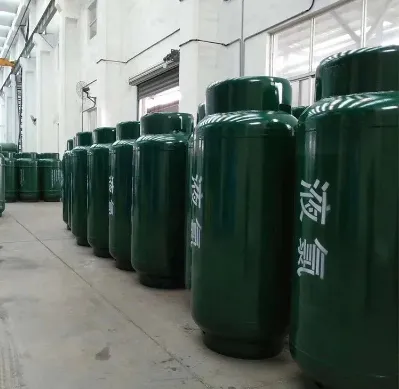


Understanding Chlorine
Chlorine is one of the most widely used chemicals in various industries due to its disinfecting, bleaching, and chemical reaction properties. It plays a crucial role in sanitation, water treatment, and the production of a wide range of products. This guide provides an overview of chlorine, its types, and where you can find chlorine for sale.

What Is Chlorine?
Chlorine is a chemical element with the symbol Cl and atomic number 17. It is a yellow-green gas at room temperature, but it is most commonly found in the form of chlorine compounds, especially in the industrial and consumer sectors. Chlorine is known for its strong disinfecting and bleaching properties, making it indispensable in a variety of applications.
Types of Chlorine
There are several types of chlorine used in different industries, each serving specific purposes:
Chlorine Gas
- Description: Chlorine gas is the elemental form of chlorine and is widely used in industrial processes.
- Uses: It is used for disinfecting drinking water, purifying swimming pool water, producing plastics like PVC, and in the chemical industry for the manufacture of various chemicals, including hydrochloric acid.
- Safety: Chlorine gas is toxic and corrosive, so it must be handled with care in controlled environments.
Sodium Hypochlorite (Bleach)
- Description: Sodium hypochlorite is a compound of chlorine and sodium, commonly found in household bleach.
- Uses: It is widely used for disinfecting surfaces, water treatment, and in laundry as a bleaching agent.
- Safety: While effective as a disinfectant, sodium hypochlorite should be handled with care as it can irritate skin and eyes.
Calcium Hypochlorite
- Description: Calcium hypochlorite is another chlorine compound, typically used in dry form as a powder or tablets.
- Uses: It is often used for pool sanitation and water treatment. It is more stable than sodium hypochlorite and can be stored for longer periods.
- Safety: Calcium hypochlorite is highly reactive, especially when exposed to moisture or heat, and can cause burns or respiratory issues if not handled properly.
Chlorine Dioxide
- Description: Chlorine dioxide is a chlorine compound that is generated onsite because it is unstable in its pure form.
- Uses: It is used for disinfecting water, in the food and beverage industry, and in industrial cleaning applications.
- Safety: Chlorine dioxide is less toxic than chlorine gas but should still be used with caution due to its powerful oxidative properties.
Hydrochloric Acid (HCl)
- Description: Hydrochloric acid is a solution of hydrogen chloride gas in water. It is a byproduct of chlorine production and is widely used in industries such as metal cleaning, food processing, and in laboratories.
- Uses: HCl is used for pH regulation, chemical synthesis, and water treatment.
- Safety: It is a highly corrosive acid and must be handled with protective equipment and care.
Uses of Chlorine
Chlorine is used in numerous applications across different industries:
Water Treatment
- Chlorine is widely used to disinfect drinking water and wastewater, killing bacteria, viruses, and other pathogens to make water safe for consumption.
Swimming Pools
- Chlorine is commonly used in pool maintenance, helping to keep pool water free from harmful bacteria and algae. It is available in different forms such as chlorine tablets and liquid chlorine.
Household Cleaning
- Chlorine compounds like sodium hypochlorite are commonly used in household bleach for cleaning and disinfecting surfaces, laundry, and even food preparation areas.
Chemical Manufacturing
- Chlorine is essential in the production of a wide range of chemicals, including PVC (polyvinyl chloride), which is used in plumbing pipes, flooring, and other products. It also plays a role in producing solvents, pesticides, and pharmaceuticals.
Bleaching and Textile Industry
- Chlorine is used as a bleaching agent in the textile industry, helping to whiten fabrics. It is also used in the production of paper and other materials to bleach them.
Chlorine Price Factors
The price of chlorine can vary depending on several factors:
Type of Chlorine
- Chlorine gas is usually more expensive and requires specialized equipment for storage and handling. Chemical compounds like sodium hypochlorite may be more affordable and easier to use for small-scale applications.
Quantity
- Bulk orders tend to have a lower per-unit cost. If you need chlorine for a large-scale operation, buying in bulk can help you save money.
Shipping and Storage
- Chlorine must be transported and stored safely, especially chlorine gas. The cost of storage tanks, safety equipment, and shipping can affect the overall price.
Geographic Location
- Prices may vary depending on your location and the proximity to chemical suppliers or production facilities.
Chlorine is a versatile and essential chemical in many industries, from water treatment and pool sanitation to industrial manufacturing and cleaning. Understanding the types of chlorine and their specific applications will help you select the right product for your needs. Whether you're looking for chlorine for sale, exploring chlorine suppliers, or simply seeking the best chlorine price, careful research and sourcing from trusted vendors will ensure that you get the right product for the job.
-
Uncover the Benefits of Sodium ChlorateNewsJun.24,2025
-
Sodium for Sale: Your Essential ResourceNewsJun.24,2025
-
Raw Materials in Chemical IndustryNewsJun.24,2025
-
Potassium Hydroxide: Versatile Solutions for Your NeedsNewsJun.24,2025
-
Organic Pesticides and Chemical Raw Materials: Building a Sustainable FutureNewsJun.24,2025
-
Discover Premium Chlorine Tablets TodayNewsJun.24,2025
-
Zinc for Sale: Your Essential ResourceNewsJun.04,2025


















